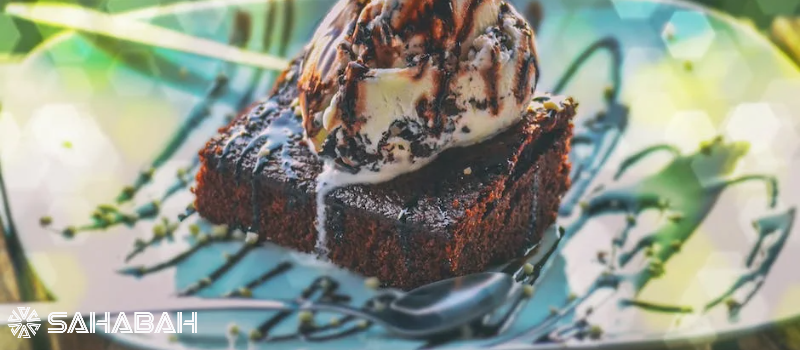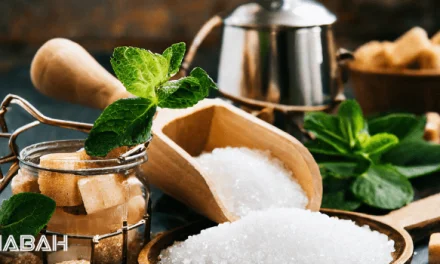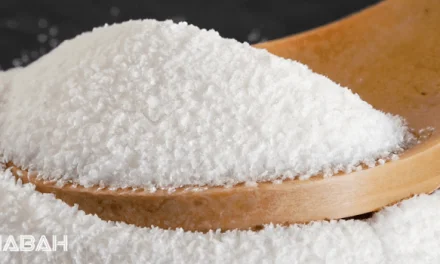Klondike bars, the quintessential ice cream treat enveloped in crisp chocolate, elicit nostalgia across generations who remember the signature jingle “What would you do-oo-oo for a Klondike bar?”. The rich chocolatey coating surrounding cool, creamy vanilla ice cream makes for the ultimate ice cream sandwich experience.
Since the original Klondike bar was invented in 1922 by the Isaly Dairy Company in Ohio, it has become an iconic American novelty dessert enjoyed by kids and adults alike. The product line has also expanded over the years to include smaller Klondike minis, non-dairy bars, and seasonal specialty flavors from peppermint to chocolate hazelnut.
But for Muslim consumers following a halal diet per Islamic law, biting into one of these delicious frozen squares may raise some questions about whether Klondike bars are actually permissible.
This comprehensive guide covers everything you need to know about evaluating the halal status of Klondike bars, including:
- An overview of Islamic dietary restrictions
- Ingredient factors that require scrutiny
- Considerations regarding lack of halal certification
- The final verdict based on manufacturing details
- Availability of certified halal alternative ice cream options
So read on for the full scoop on whether this ice cream novelty favorite allows observant Muslims to satisfyingly answer “Yes!” when asked “What would you do-oo-oo for a Klondike bar?”.
What Makes Food Halal or Haram?
As the second largest religious group worldwide after Christianity, Islam has specific guidelines defining foods as halal (permitted) or haram (prohibited) for followers.
The criteria stems from verses in the Quran outlining forbidden sources of meat along with prohibition of intoxicating substances. Over time, Muslim scholars have interpreted these injunctions into practical food standards:
Halal Food Requirements:
-
Cannot contain pork, blood, carnivorous animals
-
Meat must derive from animals slaughtered by zabiha ritual method
-
No cross-contamination with prohibited substances
Globally, certification organizations oversee protocols for verifying halal compliance at ingredient sourcing and manufacturing facilities. Receiving their official seal of approval offers assurance for Muslim consumers about a product’s permissibility.
Some devout Muslims strictly buy only items displaying certification symbols like the Islamic Society of North America crescent M symbol. But many also do their own inspection of ingredients to informally judge if something seems aligned with halal standards or not.
Taking a Deeper Look at Klondike Ingredients
The ingredients list provides clues regarding where potential issues could arise influencing Klondike bars’ designation as halal friendly or prohibitory for Muslims following Islamic dietary laws.
Decoding the Label
The classic Klondike bar contains just a few key components in its simple recipe, starting with the:
1. Chocolate Coating
Klondike bars begin their life getting dipped in a milk chocolate envelope containing:
- Sugar
- Cocoa processed with alkali
- Milk
- Soy lecithin and vanillin (emulsifiers)
- Natural and artificial flavor
Next comes the star filling of:
2. Vanilla Ice Cream
Crafted from:
- Cream
- Milk
- Sugar
- Corn syrup
- Mono and diglycerides plus guar gum (stabilizers and emulsifiers)
Finally a highlighting of:
3. Sandwich Cookie Square
With ingredients such as:
- Wheat flour
- Sugar
- Palm oil
- Soy lecithin
Individually, none of these components seem questionable at first glance. But there are a few aspects needing closer evaluation from an Islamic dietary law perspective regarding their sources and processing methods.
Scrutinizing Ingredient Sources
The dairy ingredients like milk, cream, ice cream base, and milk ingredients in Klondike’s chocolate coating require consideration regarding whether their animal origins meet religious slaughter standards. Without halal certification or designated labeling, sourcing details for foods often remain opaque.
Artificial plus natural flavoring likewise needs investigation to judge alcohol content during processing. Traces getting concentrated as residual matter could be deemed impermissible by stricter Muslims. But more contextual interpretations may permit incidental food-grade alcohol exposure.
Additionally, additives like soy lecithin must derive from soybean oil not cross-contaminated with non-halal substances for acceptance. And any glycerin present similarly should originate from vegetable rather than animal fats.
Lack of Explicit Halal Certification
Unilever owns the Klondike brand which produces the yummy ice cream sandwiches. But one notable detail is the absence of halal symbols commonly displayed on certified products like the Kosher approval present on some Klondike items.
For Muslims purchase-decision depends on whether lack of third party verification raises doubts or reasonable assurance can be found through investigating aspects like:
Undeclared Ingredient Risks
- Use of hidden additives
- Cross-contamination at facilities
Formula Changes
- Recipes frequently updated
- New risk ingredients
Supply Chain Fluctuations
- Varying ingredient batches
- Changing raw material vendors
Having no recent consumer complaints about Klondike products containing haram substances provides some measure of confidence. Those adhering to strictest interpretations would still avoid without explicit halal approval though.
Are Klondike Bars Ultimately Halal?
The final ruling on permissibility depends largely upon evaluation of dairy sourcing legitimacy and absence of intoxicant containing ingredients. These aspects require transparency that Klondike does not currently provide through official certification or detailed public documentation.
Devout Muslims would certainly steer clear without definitive evidence that Islamic dietary law restrictions are fully observed in production. For those willing to undertake personalized investigation, tentatively determining probability of halal compliance may be adequate for individual consumption. But potential for undisclosed risk remains the overarching concern.
Delicious Halal-Certified Alternatives
If foregoing the classic American ice cream novelty seems disappointing, no need to despair. Many favorite frozen dessert brands offer identically tasty options with the backing of formal halal approval, including:
Ice Creams
- Turkey Hill
- ICEE Pops
- Frosty Ice Cream
Fruit Pops
- Fla-Vor-Ice popsicles
- Luigi’s Real Italian Ice
Of course, following a dairy-free diet focused on refreshing fruit combinations provides infinite homemade popsicle ideas for guilt-free enjoyment. Whipping up chocolate peanut butter banana pops or mixed berry coconut milk ice cream lets you control the ingredients while beating the summer heat.
Are You Willing to Compromise Your Klondike Craving?
Klondike hunger pangs may still be calling after getting the scoop on the ambiguous halal standing of everyone’s favorite square ice cream sandwich.
For Muslims not strictly adhering to checking certification symbols or investigating manufacturing particulars, enjoying this chocolate covered ice cream delight likely won’t pose much of a religious dilemma. But those wanting to err on the side of caution when it comes to Islamic dietary compliance will probably consider alternative frozen treats instead.
Of course for your average sweet-tooth lover not confined by restrictions, no barriers block that resounding “Yes!” response when asked “What would you do-oo-oo for a Klondike bar?”. So for most of America, sinking teeth into the crisp chocolatey coating and vanilla ice cream remains a timeless, delectable summer pleasure!
Frequently Asked Questions: Is Klondike Halal?
Yes, Klondike ice cream products are halal-certified.
What do customers have to say about Klondike products?
Customers are saying that they love the variety of flavors and the delicious taste of Klondike ice cream.
Where are Klondike ice cream products manufactured?
Klondike ice cream products are manufactured in the United States.
Are Klondike ice cream products made with artificial growth hormones?
No, Klondike ice cream products are made with no artificial growth hormones used on cows.
Are Klondike ice cream products kosher certified?
Yes, Klondike ice cream products are kosher certified and made to satisfy customers’ needs.
What ingredients are used in Klondike ice cream products?
Klondike ice cream products may contain ingredients like cookies, nonfat milk, corn syrup solids, locust bean gum, carrageenan, and caramel color.
Are Klondike ice cream products allergen-free?
Klondike ice cream products may contain allergens, so it’s important to check the packaging for up-to-date information.
Where can I find the barcode on Klondike ice cream products?
The barcode can be found on the packaging of Klondike ice cream products.
What is the history of Klondike ice cream products?
Klondike ice cream bars were invented in the 1920s in the United States and continue to be a popular ice cream brand.
What flavors are available in Klondike ice cream products?
Klondike ice cream products come in a variety of flavors, including mint, candy, and more.





